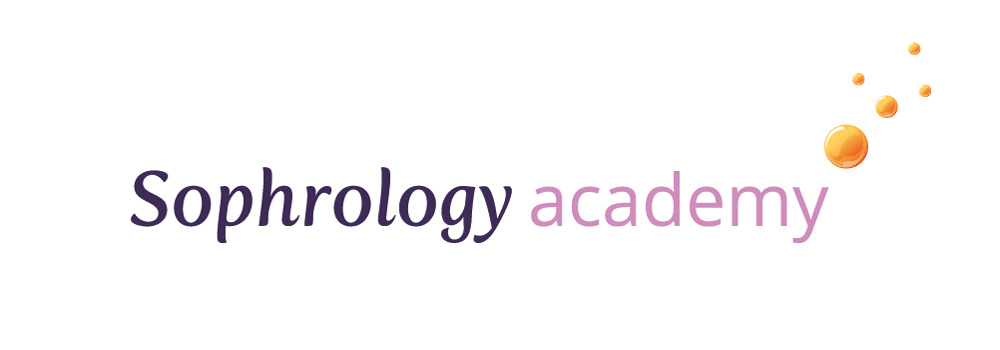Stress can be a good thing – it’s a physiological response to a perceived threat that gives our body the energy to fight or flee from that threat.
In our modern societies however, stress is bad news. This is because we experience too much of it for too long. Increasing demands on time, from both work and family; increased distractions from social media on our phones; endless to-do lists – all have a cumulative impact on our wellbeing…
…and all too soon, our stress becomes chronic.
Resetting the Work/Wellbeing Balance
A survey in 2018 showed that the UK was a stressed nation with 74% of UK residents reporting feeling ‘overwhelmed or unable to cope’ at some point in the past year.
Moving forward to 2023, in a world hit by change and uncertainty, where are we, post-Covid, and after a year of war in Ukraine?
It appears that incidences of burnout have increased by 48% – with workload stated as a primary factor.
In the face of such stark statistics, greater support is needed for employees experiencing overwhelm – and it’s critical for companies to recognise the importance of instilling cultural changes that demonstrate genuine care, and improve the well-being of their workforce.
Several companies across a range of EU countries have trialed a four-day work week to enhance the productivity and well-being of their staff. Similar trials have been made in the UK with startling results. In fact, 92% of companies that took part in the trial up-held the 4-day-work week, with reports of increased productivity and greater wellbeing.
Perhaps this growing recognition of the value of worklife/balance is the start of real positive change.
Where does the Feeling of Overwhelm come from?
In the meantime, it’s important for people to understand what they can do to cope with, and alleviate, the feeling of overwhelm they experience at work. This, in turn, can help them to be more pro-active in their own self-care.
We need to understand what happens to our performance when stress levels become too much, and how to recognise the warning signs. In doing so, we can tackle these signs and avoid a down-curve that may well lead to serious health issues such as burn-out, anxiety, depression, hypertension or heart attack.
Stress – and the Yerkes-Dodson Law
The Yerkes-Dodson Law is a bell-shaped curve showing that small levels of stress levels actually increase our performance. However, there is a tipping point at which any further increase in stress levels will decrease our performance.
What’s important to understand is that the level of stress at which we tip down the curve will vary from individual to individual, and will also depend on the context in which the stress is being experienced – as well as being influenced by your own history of stress.
Another thing that is important to understand is that your body and mind will adapt if you experience high levels of stress for a sustained amount of time. This leads – not only to cognitive changes – but also has a significant impact on the body.
Noticing the Warning Signs of Stress
Before experiencing overwhelm, you might notice some warning signs that are a result of these physiological and cognitive changes. For instance you may begin to notice greater difficulty in keeping your attention on certain tasks. You may also find that you are forgetting things frequently.
Further, you might also experience trouble with sleeping, finding it harder to fall asleep, or waking up at night with a racing mind. As you keep experiencing high stress levels, you may even start noticing that you have an earlier than usual rise every morning – a sign that the levels of stress hormones in your body are dangerously high.
As Stress Rises, our Ability to Cope Decreases
Chronic stress can seriously deplete our immune system and leave us prone to frequent illnesses. Are you one of those unlucky people who seems to fall ill as soon as you go on holiday? Again this is a clear sign that you’ve tipped over the peak of the performance curve and are heading ‘downhill’,
Feeling overwhelmed is also an indicator that you’re in hyper-stress. Maybe you feel discouraged by a growing mountain of tasks, and as a result, you are procrastinating. Or you may find that every task is taking a lot longer than it used to, and so the mountain begins to appear insurmountable. Perhaps even the most mundane tasks feel too much for you right now.
Tips to Fight Overwhelm
Unchecked, overwhelm can permeate through all areas of your life – even if it has started in the workplace. So what can we do about it?
Sophrology is a uniquely structured mind-body practice used for personal development, enhancing performance and overall health and well-being.
One of the benefits of Sophrology is that it helps you gently and positively reconnect with your body, so that you can become aware of the warning signs and begin to make much-needed positive changes.
Below are some valuable tips and solutions from stress and burn-out experts in Sophrology.
1. TAKE SHORT BREAKS
Until you try it you won’t realise how much short and regular breaks can have a huge impact on your well-being.
Florence Parot, Sophrologist, coach, teacher, and Founder of La Bulle de Repos and The Sophrology Academy says:
“ Take a break even if for a couple of minutes. Step away from your desk, walk out or in the office, have a cup of tea or a glass of water, breathe.”
Corinne Guion, Sophrologist and personal development coach at corinneguion.com is always mindful of how overwhelm at work can impact cognitive capacities; to counteract this, she offers tips and guidance that don’t feel like ‘extra work’. These are tools that are portable, short, and can fit easily into her clients’ daily routine. Corinne is also aware that the office is not generally a private place, so she suggests practices that can be used in a busy environment with no privacy.
Here is her first suggestion:
3-minute Pick-me-up:
Try and fit it in to your daily routine, maybe during your commute on public transport, at your desk mid-morning, mid-afternoon, at the canteen / coffee shop waiting for your lunch… as often as you can and notice the difference!
“Observe your breathing for 3 minutes; this is perfect for when at your desk, as you don’t need to move!
Set your alarm on your phone if you need to (on vibrate of course!).
Just sit, wherever you are, at your workstation, on public transport etc… or you can also stand up. No need to close your eyes (although you can if you are able to and it is safe to do so). Then, simply lower your gaze without focusing on any point.
Notice the contact points of your feet with the floor and of your seated base if are sitting down.
Breathing naturally, without changing anything, just observe where in your body you can notice your breathing. Perhaps, your nose, your throat, your chest, upper back or abdomen… perhaps you are sensing the movement of your body as you breathe in and out, perhaps a difference in temperature between the air coming in and the air leaving your body.
Take your time, noticing where in your body your breathing is most noticeable.
And when you have found it, just focus your attention on that part of your body for a little while longer – just observing, without changing anything.
Finally, shift your focus back to your body, the position of your body, the contact points. Deep breathe and come back in the present. “
2. RELEASE TENSIONS
Both Corinne and Florence swear by this gentle body movement, which is such a powerful exercise, to release the stress and overwhelm.
Pump it Up: Please be mindful of your shoulders/body and only do what feels comfortable for you.
Bring in energy into your body, release tension/tiredness…
You can do this very quick exercise sitting down or standing; it is just a little movement of the shoulders. At your desk or waiting for a train/bus/tube but you can also go to a quiet place if you feel that you need more privacy.
So making gentle fists, breathing in, raising the shoulders towards the ears, pumping up and down as you hold your breath, as gently of briskly as you need to and is right for you, and when you need to, breathing out through the mouth.
Letting go of the arms, give them a little shake if you want to.
Repeat TWO more times.
That’s all!
3. SLOW EVERYTHING DOWN
This is advice from Executive Director of The Sophrology Academy Liz Murphy. It might sound counter-intuitive, however when feeling overwhelmed and having difficulty concentrating on tasks, sometimes the most productive thing to do is to slow everything down.
Literally slow your movements, as you walk from here to there, as you pick things up and put things down. Be slow and deliberate as you sip your coffee even chewing your food for a little longer than usual. Taking your time like this calms your whole system, allowing you to come back to the present moment and bring more focus and emotional balance, alleviating the feelings of overwhelm.
4. DO ONE THING AT A TIME
This last tip is from Dr Audrey Zannese, Education Director of the Sophrology Academy. To believe we are able to effectively multi-task is a myth. Our brain is not designed to focus on different activities at a time. Especially when it is already under pressure from too much stress. You’d be surprised by the amount of energy and attention you loose by trying to do several things at one time!
Instead, focus on one task at a time, remove distractions and notifications. If possible, leave an out-of-office message, stating specific hours when you’ll reply to emails. This way you’re managing expectations from the start and protecting your limits and your space.
Practising these techniques when needed can really help to reduce feelings of overwhelm, and regain a sense of balance. In this way, Sophrology can help to build your inner strength and resilience, to find calm …and to work towards a healthier, happier you.
Want to know more about Sophrology? Register for our Introduction to Sophrology Workshop to discover how the Sophrology method can help with stress, sleep and other areas. This workshop is also ideal for those considering training as a Sophrology Practitioner. Find out more about our Practitioner Diploma Programme, and how to apply, here.


